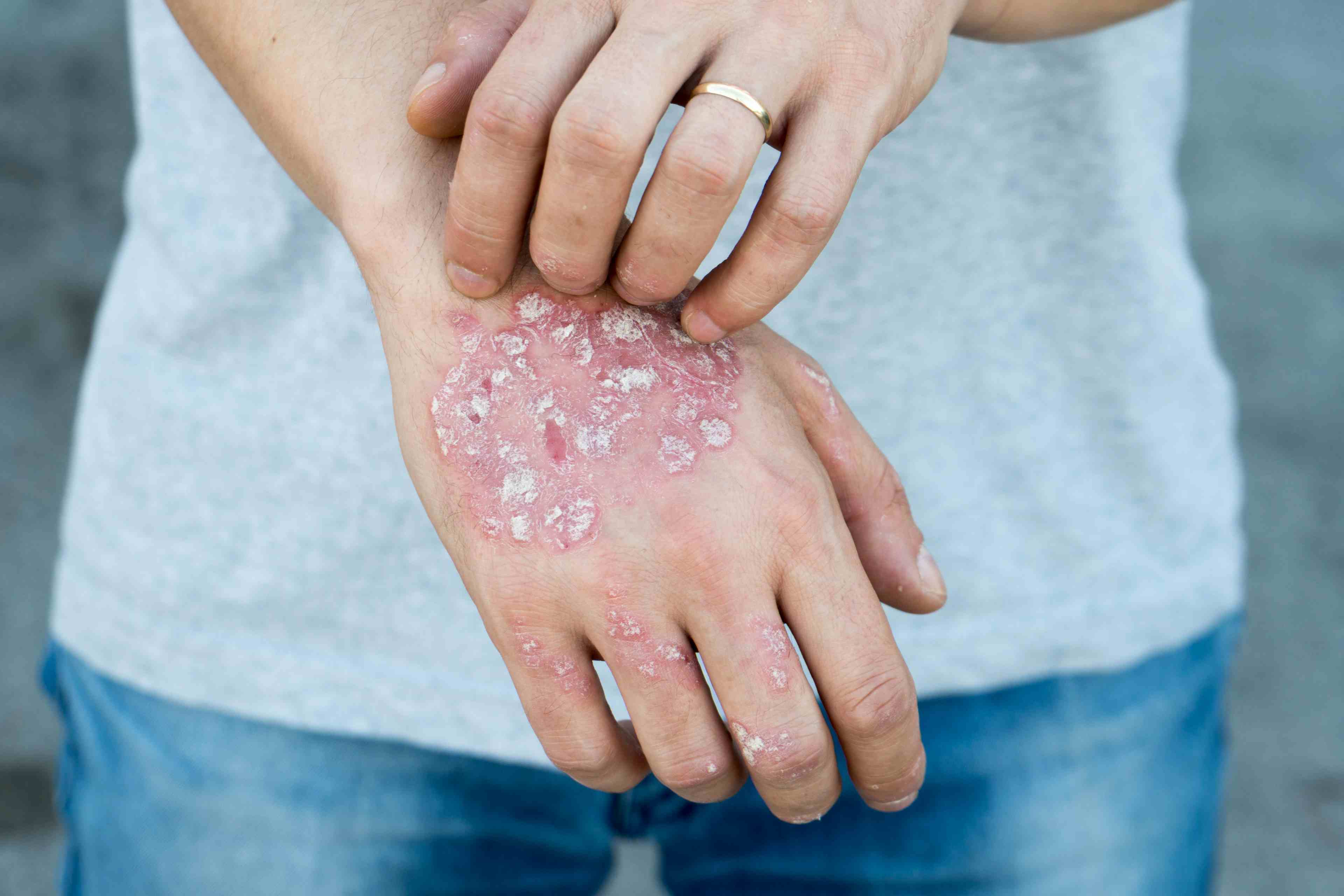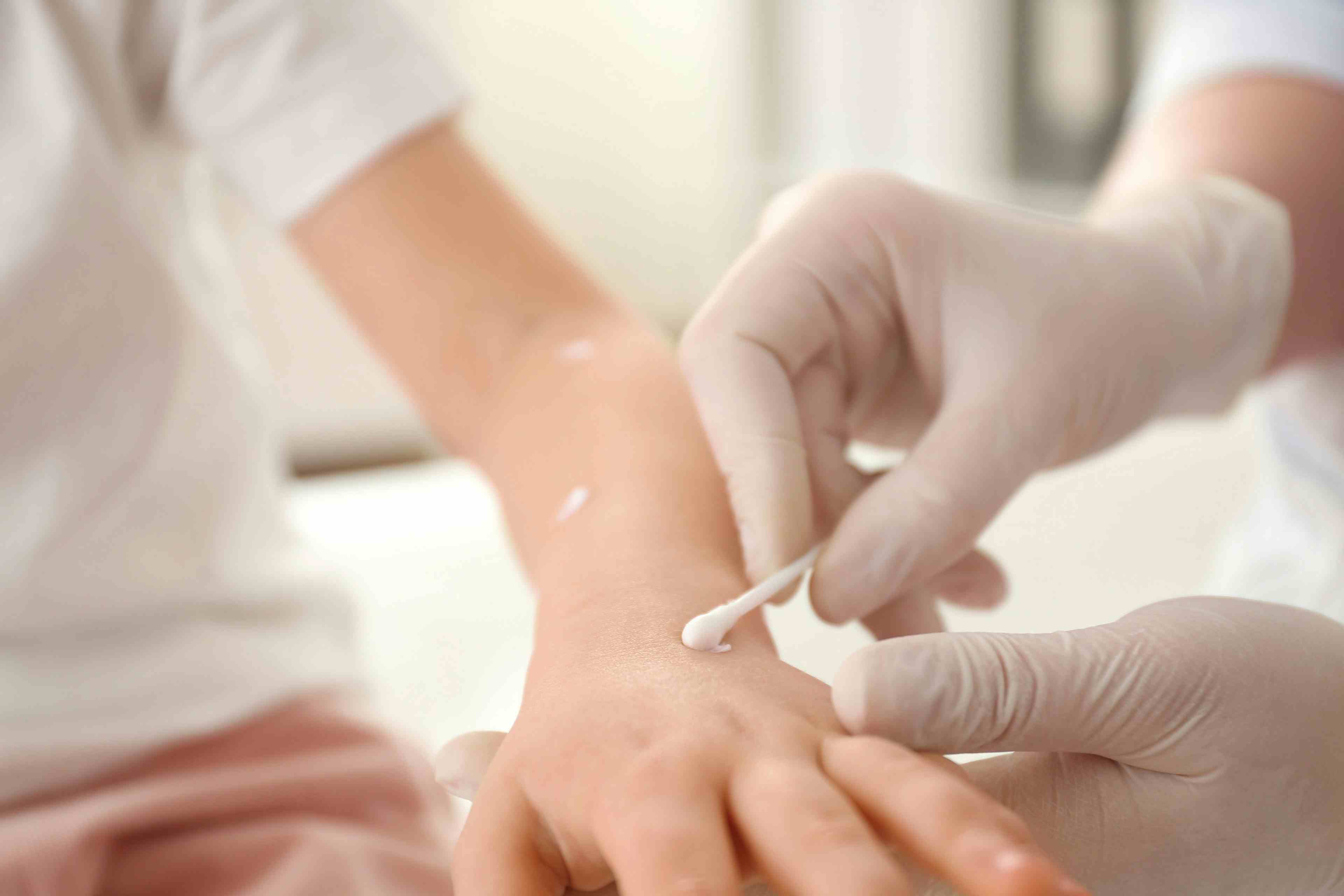- Acne
- Actinic Keratosis
- Aesthetics
- Alopecia
- Atopic Dermatitis
- Buy-and-Bill
- COVID-19
- Case-Based Roundtable
- Chronic Hand Eczema
- Chronic Spontaneous Urticaria
- Drug Watch
- Eczema
- General Dermatology
- Hidradenitis Suppurativa
- Melasma
- NP and PA
- Pediatric Dermatology
- Pigmentary Disorders
- Practice Management
- Precision Medicine and Biologics
- Prurigo Nodularis
- Psoriasis
- Psoriatic Arthritis
- Rare Disease
- Rosacea
- Skin Cancer
- Vitiligo
- Wound Care
News
Article
Analysis Finds Higher Likelihood of Improved QoL in Atopic Dermatitis for Dupilumab vs Lebrikizumab
Author(s):
Key Takeaways
- Dupilumab combined with topical corticosteroids showed superior efficacy over lebrikizumab in improving quality of life and clinical outcomes in atopic dermatitis.
- The Bucher indirect treatment comparison method was used due to the absence of direct head-to-head trials between the two treatment combinations.
Poster compared quality of life improvement for dupilumab vs lebrikizumab in atopic dermatitis.
Suriyo/Adobestock

CONFERENCE REPORTER
Investigators reported a greater likelihood for patients with atopic dermatitis to experience increased quality of life when treated with topical corticosteroids in combination with dupilumab versus in combination with lebrikizumab in a new poster presented at the Society for Dermatology Physician Assistants (SDPA) 22nd Annual Fall Dermatology Conference in Las Vegas, Nevada.1
Exploring the Data
To date, there are no direct head-to-head clinical studies that have compared the combination of topical corticosteroids with dupilumab or lebrikizumab. To better understand the efficacy of the individual combinations, Patricia Guyot, PhD, and colleagues conducted at a Bucher indirect treatment comparisons study utilizing dupilumab phase 3 trial data and lebrikizumab phase 3 trial data. The Bucher method is an established strategy of evaluating 2 treatment options when direct comparisons do not exist but there are data from trials of the agents individually compared to a common control or placebo.2
The studies selected for this investigation had comparable inclusion data. For dupilumab, the LIBERTY AD CHRONOS (NCT02260986)3 included adult patients at least 18 years old with moderate-to-severe atopic dermatitis who were receiving dupilumab 300 mg in combination with topical corticosteroids q2w (N=106), or placebo with topical corticosteroids (N=315) for 52 weeks. (The study also included participants who received dupilumab 300 mg in addition to topical corticosteroids qw, but this group was not included in the current analysis.) The ADhere (NCT04250337)4 study similarly included adults aged at least 18 years old but also included adolescents between the ages of 12 and18 who weighed at least 40kg. Participants had moderate to severe atopic dermatitis and received lebrikizumab 250 mg q2w along with topical corticosteroids (N=145) or placebo combined with topical corticosteroids (N=66) for 16 weeks. The comparison leveraged data from the 16-week period with nonresponder imputation from both studies. The investigators did not make any adjustments for the baseline characteristics.1
For assessing the efficacy, Guyot and colleagues compared 16-week scores with baseline data for Eczema Area and Severity Index (EASI), Investigator’s Global Assessment (IGA), Peak Pruritus Numerical Rating Scale P(P-NRS), and (Dermatology Life Quality Index (DLQI). Overall, patients receiving the dupilumab combination performed better than the patients who received the lebrikizumab combination. Specifically, at week 16, the investigators found dupilumab with topical corticosteroids had a significantly higher likelihood of achieving EASI-75, with an odds ratio of 2.39 (95% confidence interval, 1.10–5.19) than those who received the lebrikizumab combination. Guyot et al also found more patients on the dupilumab combination achieved PP-NRS ≥4 (OR=2.63, 95%CI 1.17–5.95) than those on the lebrikizumab combination. Although the data at 16 weeks for IGA 0/1 and achieving DLQI ≥4 favored dupilumab over lebrikizumab, the results did not achieve statistical significance, the investigators noted.
“A placebo-adjusted ITC [Bucher indirect treatment comparisons] analysis showed that the likelihood of achieving improvements in signs, symptoms, and quality of life was higher for patients treated with dupilumab plus TCS [topical corticosteroids] vs lebrikizumab plus TCS,” the poster authors concluded.1
Addressing QoL in Atopic Dermatitis
Although both agents are monoclonal antibodies, they have different characteristics. Dupilumab targets interleukin (IL)-4 and IL-13 and is human-derived. It is approved by the US Food and Drug Administration to treat type 2 inflammatory diseases, including atopic dermatitis. Previous studies have demonstrated long-term safety and efficacy.5 Lebrikizumab is a targeted IL-13 inhibitor. In September, it was approved for the treatment of patients at least 12 years old weighing at least 88 pounds (40 kg) with moderate-to-severe atopic dermatitis that is not well controlled despite treatment with topical prescription therapies.6
Quality of life has long been an issue for patients with atopic dermatitis. "Many experience poor long-term disease control, and severe itch can significantly impact their daily lives," Jonathan Silverberg, MD, PhD, MPH, professor of dermatology at George Washington University School of Medicine and Health Sciences in Washington, DC, said in a recent press statement discussing treatment needs and advances.6
Are you attending the SDPA Annual Fall Dermatology Conference? Share your thoughts with us via email to DTEditor@mmhgroup.com.
References
1. Guyot P, Xu Y, Praestgaard A, et al. Dupilumab Demonstrates Higher Likelihood of Achieving Improvements in Signs, Symptoms and Quality of Life vs Lebrikizumab at Week 16: Results from a Placebo-adjusted Indirect Comparison Analysis. Poster presented at: the Society for Dermatology Physician Assistants (SDPA) 22nd Annual Fall Dermatology Conference; November 13 -17,2024; Las Vegas, Nevada.
2. Tingle SJ, Kourounis G, Liu F, et al. Simple tool implementing Bucher’s method for indirect treatment comparisons in meta-analyses BMJ Evidence-Based Medicine Published Online First: 30 July 2024. doi: 10.1136/bmjebm-2024-113103
3. Study to Assess the Efficacy and Long-term Safety of Dupilumab (REGN668/SAR231893) in Adult Participants With Moderate-to-Severe Atopic Dermatitis (CHRONOS). Accessed November 13, 2024. https://clinicaltrials.gov/study/NCT02260986
4. Safety and Efficacy of Lebrikizumab (LY3650150) in Combination With Topical Corticosteroid in Moderate-to-Severe Atopic Dermatitis. (ADhere). Accessed November 13, 2024. https://clinicaltrials.gov/study/NCT04250337
5. Beck LA, Bissonnette R, Deleuran M, et al. Dupilumab in Adults With Moderate to Severe Atopic Dermatitis: A 5-Year Open-Label Extension Study. JAMA Dermatol. 2024;160(8):805–812. doi:10.1001/jamadermatol.2024.1536
6.FDA Approves Lilly's EBGLYSS™ (lebrikizumab-lbkz) for Adults and Children 12 Years and Older with Moderate-to-Severe Atopic Dermatitis. Eli Lilly Press Statement. September 13, 2024.Accessed November 13, 2024. https://investor.lilly.com/news-releases/news-release-details/fda-approves-lillys-ebglysstm-lebrikizumab-lbkz-adults-and
Newsletter
Like what you’re reading? Subscribe to Dermatology Times for weekly updates on therapies, innovations, and real-world practice tips.
















